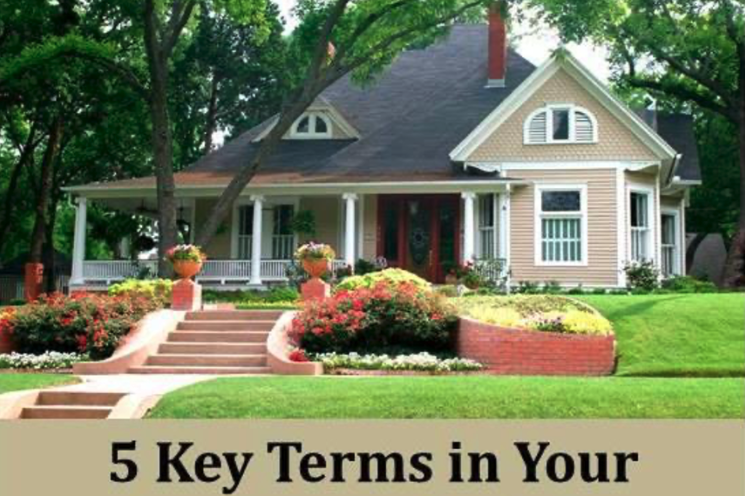Do you find home insurance policies somewhat difficult to understand, even when you read them carefully? You’re not alone; terminology can differ from carrier to carrier.
While there are a lot of things you need to be aware of when reading and understanding your home insurance policy, there are 5 key terms you need to know in order to make sure that your personal assets are protected and any potential liability is covered.
- Replacement Cost
Whether due to burglary or a natural disaster, you want to make sure that your home and possessions are replaced. Insurance companies offer two ways to compensate you for your damaged/destroyed possessions. One way is Replacement Cost – the cost to purchase a brand new item comparable to what you lost. The other is Actual Cash Value – the depreciated value of the item in question. As an example, replacing a leather couch can easily cost upwards of $2500 if you buy a new one. On the other hand, a used one of comparage age and quality to what was destroyed might only cost a couple hundred dollars at best. Thus it’s important to know not just what is covered, but HOW it is covered.
- Water Backup
Water backup is a vital feature in coverage, and if you encounter an issue with water accidents, you’ll be glad that you made sure it’s included in your home insurance policy. Normally, the coverage is for situations that are not covered on a standard home policy.
- All-Risk Coverage
All-risk (aka all-peril or broadform) coverage doesn’t list everything that is covered – instead, it lists everything that isn’t included. It’s not imperative to purchase an all-risk coverage plan, but it’s always good to ask for and evaluate. While there are some exceptions to all-risk coverage (nuclear war, flood and ground contamination), it can increase your sense of protection.
- HOAs
If you’re in a home that relies on a master policy as your primary coverage, read it carefully and pay attention to the details. You want to make sure that there are no special items, deductibles or gaps in the coverage between your personal and your master policy. You can easily get more clarity on this information by talking to your insurance agent or an HOA representative. It could come in handy to record these conversations (with their permission) so that you always have the information on hand when you need it.
- Valuable items
It’s not uncommon for valuable items like jewelry, guns, furs, precious metals, etc., to only be insured up to $1,500 (renters insurance policies may only go as high as $500).. If your valuables are worth more than $1,500 each, you may need a professional appraisal of the item in question and a photo of it to add to your home policy.
What additional questions do you have about homeowners insurance? We’re here to help!

